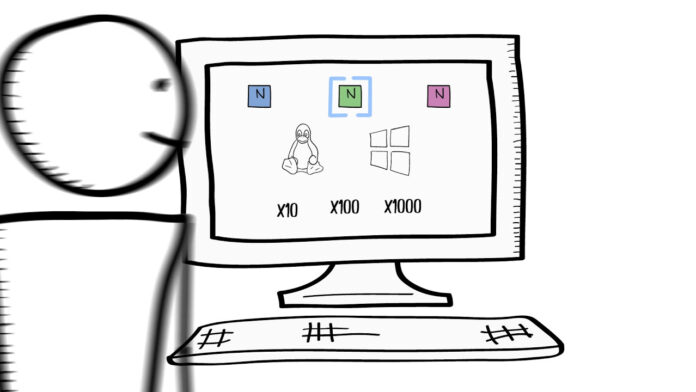Social media has become an integral part of our daily lives, shaping the way we communicate, consume information, and engage with the world around us. This article aims to explore the history, positive and negative impacts, and the ways to manage and regulate social media.
History of Social Media
The Early Days of Social Media
Social media can trace its roots back to the 1970s and 1980s, with the development of bulletin board systems (BBS) and early online forums. These platforms allowed users to connect with each other, share information, and participate in discussions. In the 1990s, the advent of the World Wide Web and the increasing accessibility of the internet paved the way for more advanced social media platforms.
The Rise of Major Social Media Platforms
The early 2000s saw the emergence of some of the most well-known social media platforms, such as Friendster (2002), MySpace (2003), and LinkedIn (2003). These platforms focused on building online communities and facilitating connections between users. In 2004, Facebook was launched and quickly gained popularity, becoming one of the dominant social media platforms worldwide.
The Evolution of Social Media
Over the years, social media has continued to evolve, with the introduction of new platforms such as Twitter (2006), Instagram (2010), and TikTok (2016). These platforms have introduced new features and functionalities, catering to various user preferences and interests. The rise of mobile technology has also played a significant role in the growth and accessibility of social media.
Positive Impacts of Social Media

Improved Communication and Connectivity
One of the most significant positive impacts of social media is its ability to facilitate communication and connectivity among individuals and communities. Social media platforms have made it easier for people to stay in touch with friends, family, and loved ones, regardless of geographical distance. This has helped to strengthen social bonds and foster a sense of community.
Enhanced Access to Information and Learning
Social media has become a vast repository of information, providing users with easy access to a wide range of topics and subjects. Platforms like Twitter, Reddit, and various online forums have become hubs for sharing knowledge, engaging in discussions, and learning from others. This has opened up new avenues for education, allowing individuals to acquire knowledge and skills beyond the traditional classroom setting.
Increased Opportunities for Self-Expression and Creativity
Social media has provided individuals with a platform to express themselves, share their thoughts, and showcase their creativity. From personal blogs to visual-based platforms like Instagram and TikTok, users can share their unique perspectives, hobbies, and talents with a wider audience. This has empowered individuals to find their voice and connect with like-minded communities.
Mobilization and Activism
Social media has played a crucial role in facilitating social and political movements, enabling individuals and groups to mobilize, raise awareness, and advocate for various causes. Platforms like Twitter and Facebook have become powerful tools for organizing protests, rallying support, and amplifying marginalized voices.
Improved Entrepreneurship and Business Opportunities
Social media has revolutionized the way businesses and entrepreneurs operate. Platforms like Instagram, LinkedIn, and YouTube have provided entrepreneurs and small businesses with cost-effective ways to reach a broader audience, build brand awareness, and engage with customers. This has created new opportunities for entrepreneurship and business growth.
Negative Impacts of Social Media

Addiction and Excessive Use
One of the most significant negative impacts of social media is the potential for addiction and excessive use. The constant stream of new content, notifications, and social interactions can lead to a compulsive need to check and engage with social media platforms, often at the expense of other important aspects of life.
Spread of Misinformation and Fake News
Social media has become a breeding ground for the spread of misinformation and fake news. The ease with which information can be shared, combined with the lack of fact-checking and verification, has contributed to the proliferation of false and misleading content. This can have serious consequences, such as the undermining of trust in important institutions and the fueling of social and political tensions.
Negative Impact on Mental Health
Numerous studies have suggested that excessive social media use can have negative impacts on mental health, including increased feelings of loneliness, depression, and anxiety. The constant exposure to curated and idealized content can lead to feelings of inadequacy and low self-esteem, particularly among younger users.
Privacy and Data Concerns
Social media platforms collect vast amounts of user data, often without full transparency or user consent. This raises significant concerns about privacy, data security, and the potential misuse of personal information. The lack of robust data protection and privacy regulations in some regions has further exacerbated these concerns.
Cyberbullying and Online Harassment
The anonymity and lack of face-to-face interaction on social media platforms have contributed to the rise of cyberbullying and online harassment. This can have devastating consequences for victims, particularly among young people, leading to emotional distress, mental health issues, and, in some cases, even self-harm or suicide.
Ways to Manage and Regulate Social Media
Developing Digital Literacy
One of the key ways to manage and regulate the impact of social media is through the promotion of digital literacy. This involves educating individuals, particularly children and young adults, on the responsible and critical use of social media. This includes teaching them to identify misinformation, assess the reliability of sources, and maintain a healthy relationship with social media.
Implementing Effective Policies and Regulations
Governments and policymakers have a crucial role to play in regulating the social media landscape. This includes the development of comprehensive data protection and privacy laws, as well as the enforcement of measures to curb the spread of misinformation and hate speech. Ongoing dialogue and collaboration between policymakers, social media companies, and civil society are essential to ensure effective regulation.
Fostering Responsible Corporate Practices
Social media companies have a significant responsibility to address the negative impacts of their platforms. This includes implementing robust content moderation practices, enhancing user privacy and data protection measures, and promoting transparency in their algorithmic processes. Companies should also invest in research and development to better understand the societal impact of social media and implement strategies to mitigate harm.
Encouraging Mindful Social Media Use
Individuals can also play a role in managing the impact of social media by practicing mindful and responsible use. This includes setting boundaries, limiting screen time, and being more intentional about the content they consume and share. Encouraging open conversations about the challenges and benefits of social media can also help to foster a more informed and balanced approach.
Promoting Offline Engagement and Community Building
While social media has undoubtedly transformed the way we connect and interact, it is essential to maintain a balance between online and offline engagement. Encouraging offline activities, community involvement, and face-to-face interactions can help to counteract the potential negative effects of excessive social media use and foster healthier, more meaningful relationships.
Conclusion
Social media has had a profound impact on our lives, both positive and negative. While it has brought about numerous benefits, such as improved communication, access to information, and opportunities for self-expression, it has also given rise to significant challenges, including addiction, the spread of misinformation, and negative impacts on mental health.
To effectively manage and regulate the impact of social media, a multifaceted approach is required. This involves developing digital literacy, implementing robust policies and regulations, fostering responsible corporate practices, encouraging mindful social media use, and promoting offline engagement and community building.
By addressing these issues and working towards a more balanced and responsible approach to social media, we can harness its power to enhance our lives while mitigating its potential harms. As we navigate this evolving digital landscape, it is essential that we remain vigilant, informed, and proactive in shaping the future of social media and its impact on our society.









